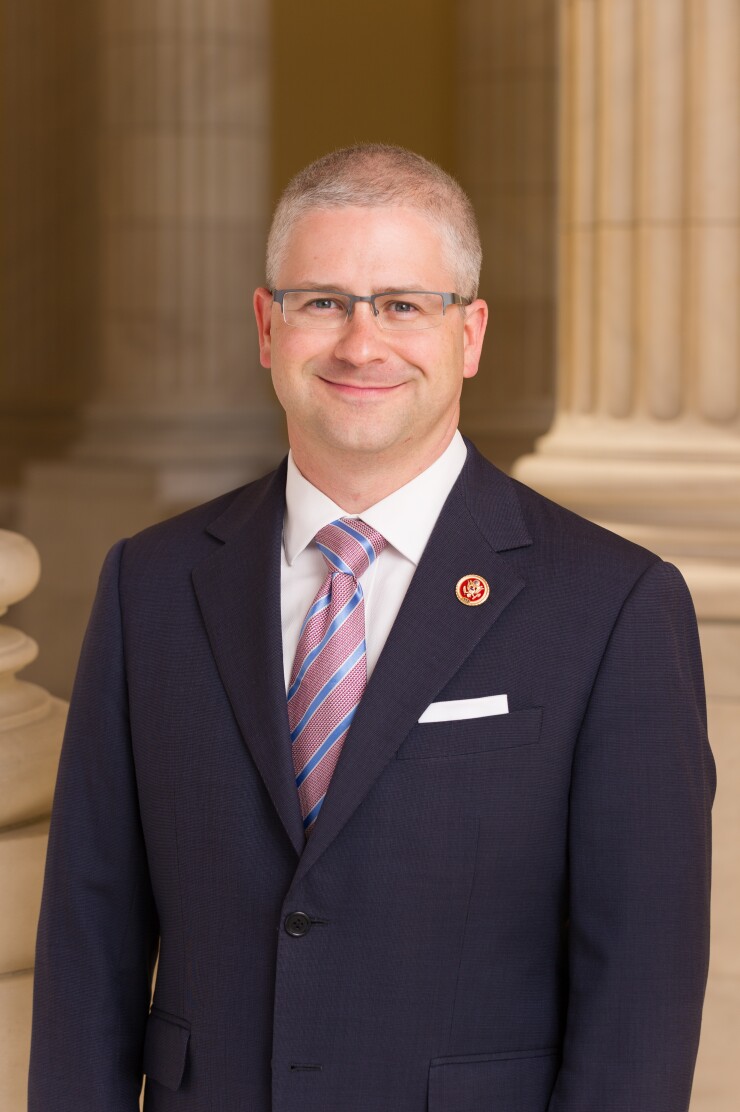WASHINGTON — In his efforts to defend his agency's fintech charter from attacks by the left, Comptroller of the Currency Thomas Curry appears to have ignited a firestorm on the right.
Thirty-four House Republicans demanded last week that the Office of the Comptroller of the Currency slow down the effort to offer a limited-purpose bank charter to companies like online lenders and payment processors, threatening potentially to overturn any decision if it did press ahead.
Their concern was apparently sparked after Curry delivered a
That angered Republicans, who worried that Curry was effectively rushing to release the charter before his term expires in April. (Curry, who was appointed by former President Obama, is set to retain his position until a new comptroller is confirmed by the Senate.)

“He has definitely given in to pressure from state regulators and consumer groups and in doing so he has killed the promise of the fintech charter,” said JW Verret, an assistant professor of law at George Mason University. “He started out on one side and he crossed over to the other side.”
For example, Verret cited Curry’s promise that the OCC would require fintech companies under the charter to face capital requirements, as well as fair-lending restrictions in the vein of the anti-redlining Community Reinvestment Act.
Curry also reaffirmed the sanctity of the separation of banking and commerce, apparently as a response to concerns raised by two Democratic senators in
Sources on the Hill suggested that Republican reservations on the charter had been simmering even before the speech.
Critics on both sides of the aisle feel that the OCC has proceeded in a relatively opaque manner by issuing policy papers and guidance, rather than undergoing a formal rulemaking process.
“Everybody else assumed that we were going to have a rulemaking on this,” said a House GOP aide, speaking on the condition of anonymity. “A lot of people felt like the comptroller was rushing it because he wants it to be his legacy, and that's not a way to make policy.”
Republicans hope that if the fintech charter is left in limbo for a little while longer — at least until a new comptroller takes office — they will have more control of the initiative. Instead, they say Curry has been trying to rush the initiative through.
“Fintech is bigger than one bureaucrat’s legacy,” Rep. Patrick McHenry, R-N.C., said in a statement. “To rush out the door at the final hour a special charter that is likely to have something for everyone to dislike is not only counterproductive, but downright dangerous for the future of fintech in America.”
Under a Republican comptroller, GOP lawmakers hope the charter could be more friendly to the fintech industry, and less tied down by banklike regulatory requirements.
The OCC’s position could be summarized as, “ 'Our anchor is the preexisting traditional national bank and we're going to tweak around the edges for fintech," said Brian Knight, a senior research fellow at the Mercatus Center. “As opposed to, 'Take these fintechs as they are and create a system that works for them.' ”
Though the Trump administration has not yet discussed appointing a new comptroller, it has shown a clear preference for
“It is one thing to be getting midnight regulation done before the old administration leaves,” Knight said. “It's another thing to try to effectively do that while the new administration is in place.”
Others have accused the OCC of not having sufficient authority to create a new limited-purpose bank charter for financial institutions that do not participate in all three core banking functions: taking deposits, making loans and cashing checks.
In a 21-page
Republicans have taken these challenges seriously.
“I hope we don't have to legislate on this to get the charter done,” the House GOP aide said. “But if CSBS sues and wins, then we might have to clarify the legal authority.”
Still, the fintech charter has garnered a number of supporters — not only among fintech companies, but also within the banking industry.
“The OCC has undertaken a deliberate and transparent process so far in its efforts to encourage responsible innovation in banking,” Rob Morgan, vice president of emerging technologies at the American Bankers Association, said in response to the House Republicans’ letter. “We hope that they will continue this trend.”
Proponents of the charter also point to the OCC’s efforts to request public comment at virtually every stage of its public deliberation on the fintech charter — from the white paper issued last March to the blueprint published in December. The agency is also set to release soon a supplement to its licensing manual that will lay out the expectations for fintech charter applicants in further detail.
“They’ve been definitely soliciting public input,” said Richard Garabedian, a counsel at Womble Carlyle, who noted that individual charter application would also have to undergo a period of public review and comment.
“I'm not sure that Congress will be able to get its act together to block something that the OCC does,” Garabedian said. “They're trying to cut it off at the pass.”





